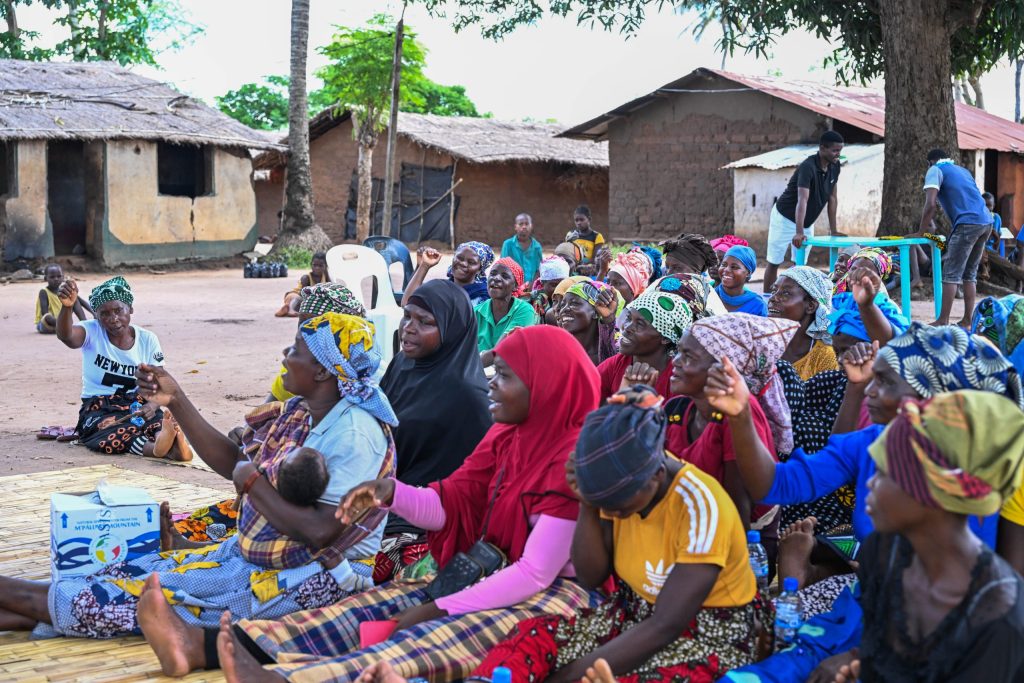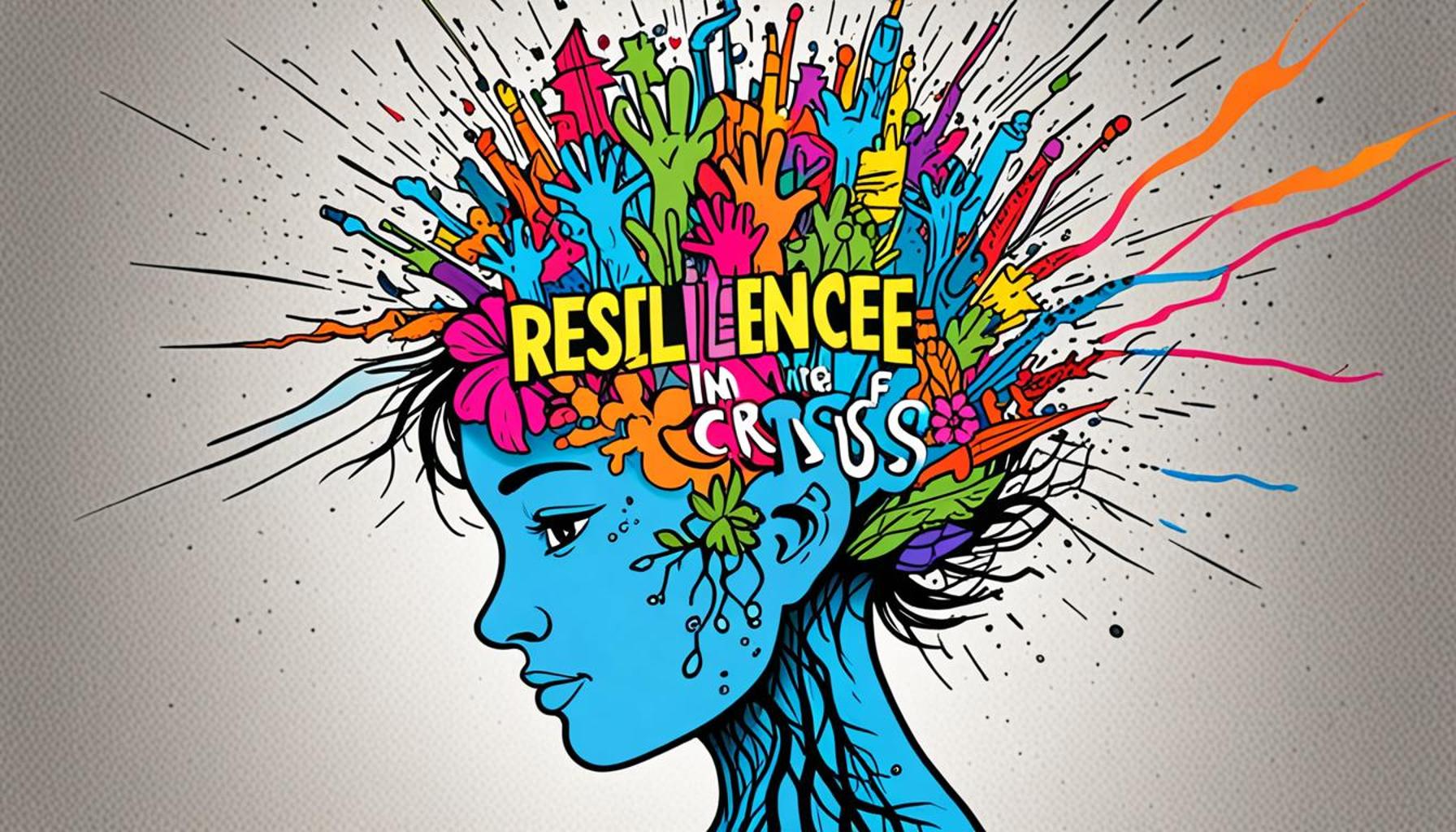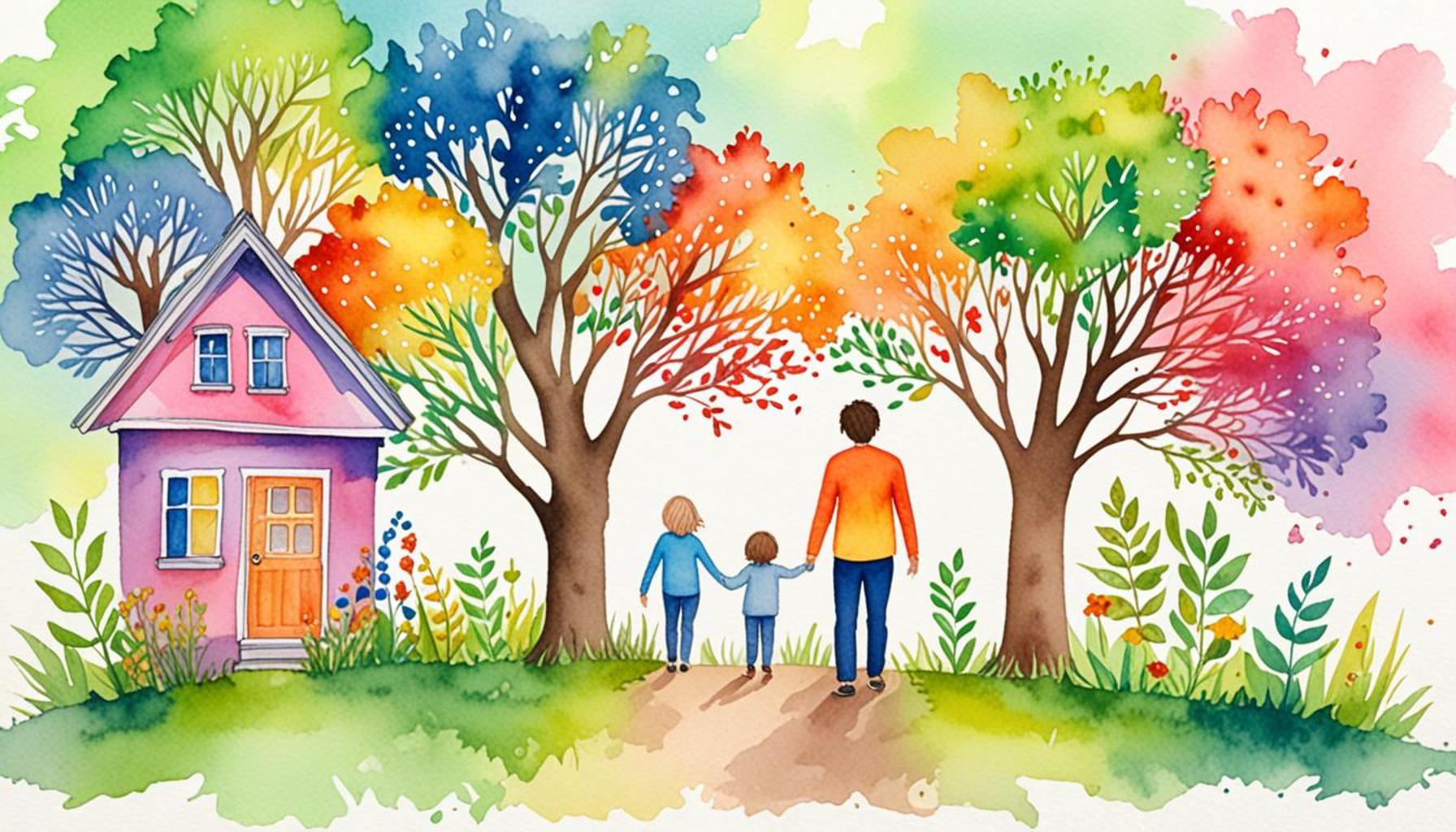Developing Resilience: Strategies for Personal Growth in Nigerian Communities

The Essence of Resilience in Nigerian Communities
Resilience acts as a vital force that empowers individuals to rise above adversities. In Nigeria, with its diverse landscapes and dynamic cultures, the importance of this quality is magnified. Communities frequently encounter challenges related to economic instability, environmental degradation, and social unrest. In such an atmosphere, the ability to adapt, recover, and thrive amid difficulties becomes indispensable.
Key Strategies for Cultivating Resilience
Understanding and building resilience involves employing crucial strategies that enhance personal growth and community strength. Here are some key areas of focus:
- Emotional Intelligence: This skill encompasses the ability to recognize and regulate one’s emotions while being mindful of others’ feelings. For instance, a community leader in Lagos who exhibits emotional intelligence may effectively mediate conflicts by empathizing with differing perspectives, promoting unity in times of crisis.
- Social Support: This is vital for resilient communities. Networks of family, friends, and colleagues help provide emotional backing and tangible assistance. In northern Nigeria, community gatherings often serve as platforms for sharing experiences and resources, strengthening the bonds that help individuals navigate hardships.
- Cultural Awareness: Embracing local traditions and values fosters a sense of identity and belonging. For instance, many Nigerian communities celebrate festivals that honor their heritage, which can serve as a source of strength and solidarity during challenging periods.
Benefits of Implementing Resilience Strategies
Emphasizing resilience yields numerous benefits that extend beyond the individual. Implementing these strategies can result in:
- Increased self-awareness and self-esteem: This leads individuals to understand their capabilities better and recognize their strengths, fostering a positive outlook on life.
- Better coping mechanisms: Equipping individuals with tools to tackle challenges nurtures a proactive approach to adversity, allowing for healthier responses during crises.
- A greater sense of community and belonging: As people unite through shared experiences and cultural practices, they form a resilient collective that provides support and encouragement to one another.
Practical Approaches for Nigerian Contexts
As we delve deeper, it is crucial to explore practical approaches specifically designed for the Nigerian context. Various grassroots initiatives and educational programs have emerged, aiming to bolster resilience at the community level. For example, local NGOs facilitate workshops that teach emotional intelligence and conflict resolution skills, while schools incorporate programs focused on social support systems among students.
The journey towards resilience is a dynamic interplay of personal and communal efforts. Join this exploration of resilience’s transformative power and discover new pathways to growth and solidarity within Nigeria’s vibrant communities.

CHECK OUT: Click here to explore more
Practical Approaches for Fostering Resilience in Nigerian Communities
In the quest to build resilience, Nigerian communities can leverage a variety of practical approaches that emphasize local strengths and resources. By fostering individual capabilities and encouraging collective action, communities can better navigate the challenges inherent in their environments. Below are several practical strategies tailored to the unique dynamics of Nigerian society:
1. Community-Based Education Initiatives
Education plays a critical role in developing resilience. Community-based education initiatives can provide individuals, particularly the youth, with the skills necessary to adapt and thrive. For example, community workshops focused on life skills, such as time management, decision-making, and self-care, significantly enhance personal growth. Through local partnerships, such as the involvement of state educational boards and NGOs, these education programs can integrate cultural relevance into their curricula. This way, students not only learn academic subjects but also develop emotional intelligence and social collaboration.
2. Leveraging Traditional Conflict Resolution Mechanisms
In many Nigerian communities, traditional conflict resolution mechanisms remain deeply ingrained. Utilizing these mechanisms can offer unique advantages in promoting resilience. Elders often play crucial roles, offering wisdom and guidance when disputes arise. By integrating modern conflict resolution skills with traditional practices, communities can create an enriched framework for managing conflicts. For instance, in the southwestern regions, gatherings known as “Ayo” (playing games) and “Ojude Oba” (a cultural festival) strengthen community ties while providing platforms for dialogue and reconciliation.
3. Building Health and Wellness Networks
The connection between physical health and resilience is undeniable. Establishing community health and wellness networks can enhance the overall well-being of individuals within a community. These health initiatives may include organizing regular health check-ups, yoga classes, and mental wellness workshops that address both physical and psychological aspects of health. By promoting healthy lifestyles, communities can help individuals cultivate the stamina necessary to face life’s challenges.
4. Grassroots Economic Empowerment Programs
Economic stability is a cornerstone of resilience; thus, grassroots economic empowerment programs must be prioritized. Programs that facilitate microloans and entrepreneurship training can stimulate local economies and uplift community members. For instance, women’s cooperatives in rural areas have shown remarkable success in developing sustainable businesses. By pooling resources and supporting each other, these cooperatives enable women to gain financial independence and strengthen their families.
5. Enhancing Social Cohesion through Cultural Activities
Cultural activities serve as a powerful tool for enhancing social cohesion and promoting resilience. Festivals, dance performances, and traditional storytelling can foster community identity and solidarity. These events not only create opportunities for communal participation but also enable individuals to reconnect with their roots, instilling a sense of pride and belonging. The annual Calabar Carnival and the Osun-Osogbo Festival are excellent examples of how cultural celebrations can galvanize communities, strengthening social bonds during trying times.
As Nigerian communities continue to confront various challenges, integrating these practical strategies into their resilience-building efforts can lead to transformative change. By fostering an environment that nurtures personal growth and collective strength, individuals and communities alike can emerge more robust, closely knitted, and prepared for future adversities.
| Category | Details |
|---|---|
| Community Support Systems | Importance of solidarity among community members. |
| Educational Opportunities | Access to learning resources enhances skills and self-efficacy. |
| Mental Health Awareness | Promoting emotional well-being and coping mechanisms. |
| Empowerment Programs | Training initiatives aimed at skilling youth and women. |
In Nigerian communities, the enhancement of resilience can be strategically achieved through robust community support systems that emphasize solidarity and the collective strength of members. These support systems foster an environment where individuals share challenges and victories, thereby bolstering personal growth. Moreover, the emphasis on educational opportunities plays a pivotal role. When individuals in these communities have access to enriched learning resources, they develop necessary skills that not only improve their self-efficacy but also equip them for various challenges they may face throughout life.Equally important is the rising focus on mental health awareness. As communities strive to normalize conversations surrounding emotional well-being, the provision of coping mechanisms becomes increasingly vital, allowing individuals to better navigate life’s adversities.Lastly, the implementation of empowerment programs showcases the potential of targeted training initiatives aimed at youth and women. These programs are instrumental in providing tools that catalyze personal growth and resilience, aiming for long-term community development and sustainability. These layers of interconnected strategies paint a holistic picture of how resilience can be cultivated and strengthened in Nigerian communities, inviting readers to explore effective practices that can lead to impactful change.
YOU MAY ALSO LIKE: Read read another article
Innovative Strategies for Building Resilience in Nigerian Communities
Aiming to cultivate resilience within Nigerian communities requires innovative approaches that are adaptive and responsive to the unique challenges faced. By employing creativity and flexibility in development strategies, communities can enhance their capacity for personal growth and collective success. Here are some additional strategies that can be instrumental in fostering resilience:
6. Digital Literacy and Technology Adoption
In an era increasingly dominated by technology, digital literacy is essential for personal growth. Implementing programs that teach community members how to use smartphones, computers, and online resources can empower them significantly. In Nigeria, initiatives like Tech4Dev and local coding boot camps are paving the way. These programs not only teach technical skills but also open doors to online job markets and educational opportunities. By embracing technology, individuals can strengthen their resilience by accessing vital information and advocating for themselves more effectively.
7. Promoting Environmental Sustainability
Environmental resilience is a critical factor affecting personal growth in many Nigerian communities. Efforts to promote environmental sustainability can have a profound impact on resilience by increasing community awareness and participation in maintaining their surroundings. Initiatives such as tree planting campaigns and waste management programs engage community members in preserving their environment. For example, the “Clean-Up Nigeria” movement has mobilized thousands to take action. By fostering a sense of responsibility towards the environment, individuals can feel more empowered to take charge of their community’s well-being.
8. Supporting Mental Health Awareness
Mental health remains a crucial but often neglected aspect of resilience. Increasing awareness about mental health issues and providing accessible mental health services can be pivotal in supporting personal growth. Community-led workshops that address topics such as stress management, trauma recovery, and coping mechanisms serve to destigmatize mental health discussions. Organizations like Mentally Aware Nigeria Initiative focus on creating safe spaces for dialogue and support, thus encouraging individuals to seek help when necessary. As mental health awareness grows, so does the community’s ability to cope with and bounce back from personal adversities.
9. Integrating Youth Leadership and Mentorship Programs
Youth in Nigerian communities are often the change-makers of tomorrow. Implementing mentorship programs that pair experienced individuals with young leaders can nurture resilience and personal growth. These programs can focus on skills development, leadership training, and career advice. For example, the Youth Empowerment Program has seen significant success in bridging the gap between generations. By investing in youth leadership, communities not only prepare the next generation but also create networks of support that enhance resilience across age groups.
10. Utilizing Social Media for Community Mobilization
Social media has revolutionized communication and could be a powerful tool for community mobilization. By leveraging platforms like Facebook, Twitter, and Instagram, communities can share resources, organize events, and provide support during crises. Campaigns such as #EndSARS have illustrated how social media can galvanize young people towards activism and communal support. By fostering online communities, spirit fostering resilience and collective action becomes more attainable.
These innovative strategies reflect a holistic approach to resilience development, emphasizing the interplay between individual capacities and communal ties. By adapting to the evolving needs of the communities, Nigeria can look forward to a future where resilience becomes an ingrained part of societal fabric, providing individuals with the strength to triumph over challenges.
ADDITIONAL INSIGHTS: Expand your understanding here
Conclusion: Embracing Resilience for a Brighter Future
In conclusion, the journey towards developing resilience within Nigerian communities is a multifaceted endeavor that requires collective effort and innovative thinking. The strategies outlined—from digital literacy initiatives to the promotion of mental health awareness—demonstrate the potential for growth when communities come together to support one another. By enabling individuals to harness their strengths and address their challenges, these strategies create an atmosphere of personal empowerment and communal solidarity.
As the world rapidly evolves, embracing technology and environmental sustainability emerges as a fundamental part of resilience-building. The successful implementation of mentorship programs and the strategic use of social media further empower youth and strengthen community ties. These are essential components in a holistic approach to resilience, marking strides towards nurturing future leaders who can effectively navigate changing circumstances.
Ultimately, fostering resilience in Nigerian communities not only equips individuals to bounce back from adversity but also enhances the overall quality of life. The future looks promising as these communities adopt dynamic and inclusive strategies that focus on personal growth and collective well-being. As we move forward, ongoing commitment from all stakeholders—governments, non-profits, and community members alike—will be crucial in cementing resilience as a core value, paving the way for a robust and united Nigeria.


